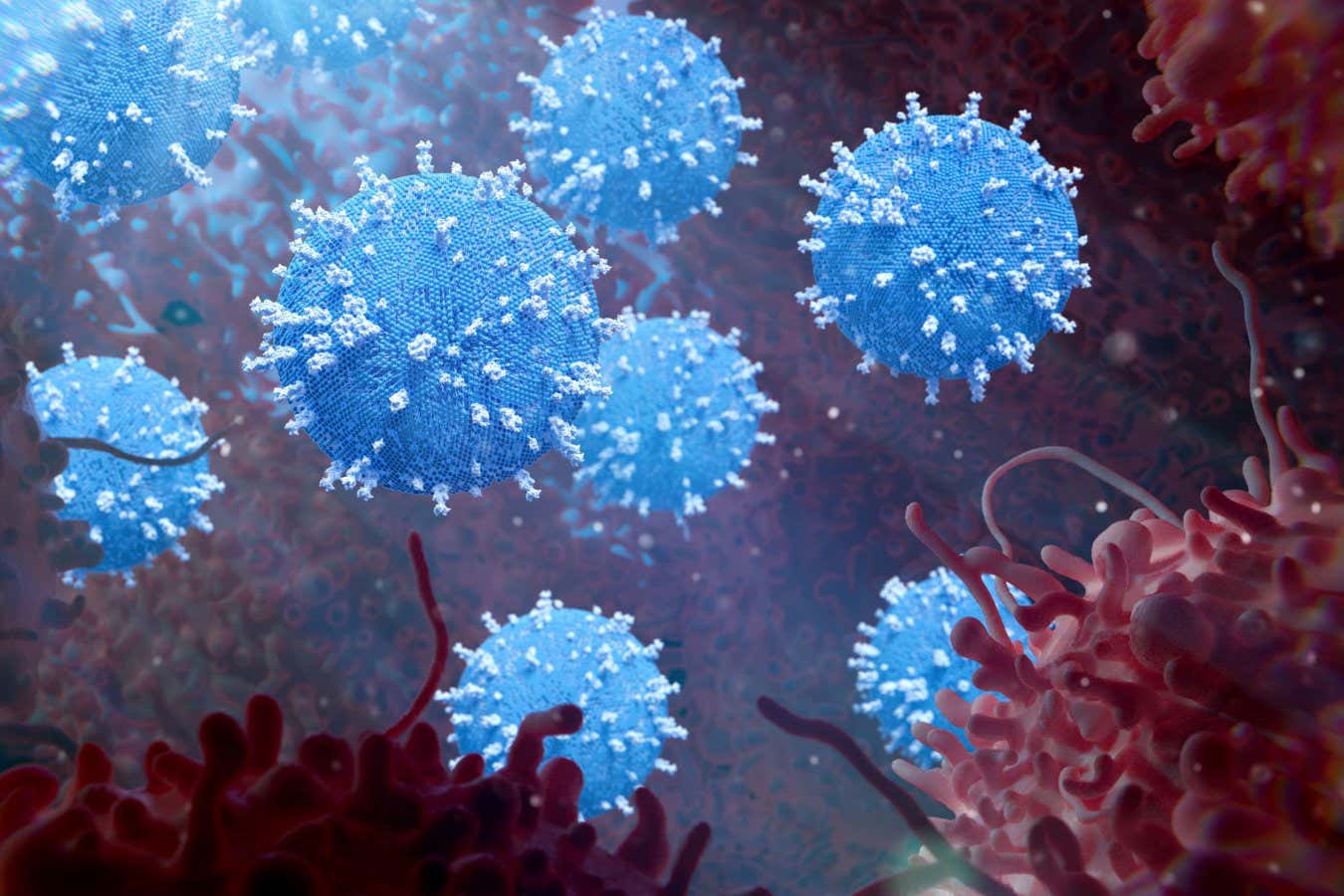Now Reading: Bacteria Shield Boosts Cancer-Killing Virus Effectiveness
-
01
Bacteria Shield Boosts Cancer-Killing Virus Effectiveness
Bacteria Shield Boosts Cancer-Killing Virus Effectiveness

Speedy Summary:
- Scientists have developed a technique using genetically engineered bacteria to shield cancer-killing viruses from the immune system, enabling treatment of harder-to-reach tumours.
- This method involves Salmonella typhimurium bacteria carrying the genome of Senecavirus A, which is known to kill human cancer cells.
- The approach, referred to as a “Trojan horse,” allows bacteria to deliver the virus directly into tumour cells without being destroyed prematurely by the immune system.
- Experiments on mice with nerve tumours showed that this bacterial delivery (CAPPSID) extended tumour growth time from 11 days to 21 days before reaching maximum allowable size.
- In another experiment, CAPPSID completely eradicated human lung tumours in mice but lacked a control group for comparison in this case.
- Researchers found minimal side effects and noted potential for even greater efficacy against slower-growing cancers.
- Further testing on different tumour types and other animals is required before human trials can begin.
Indian Opinion Analysis:
This innovative use of genetically engineered bacteria as carriers for cancer-killing viruses holds meaningful promise for advancing cancer treatments globally. For India, where access to advanced healthcare technologies varies widely across regions, such breakthroughs could inspire local research and development in similar low-cost therapeutic solutions.Furthermore, with India’s rising focus on biotechnological innovations supported by institutions like DBT (Department of Biotechnology), such globally emerging findings may present opportunities to enhance domestic partnerships or add impetus to homegrown scientific discoveries. However, given this technology is still in experimental stages requiring extensive animal studies before clinical applicability, its immediate adoption or implications remain uncertain.


























